Every time you bring reusable bags to the grocery store, opt to take public transit instead of driving, or check if something is recyclable before you toss it in the trash can, you are helping our planet. To be sure, big actions are needed to alleviate the growing concerns around climate change. But small actions can be the catalyst for large-scale change.
Earth Day, celebrated annually since 1970, is held on April 22 as a call to action to take care of our planet—both for today and for the future. Driven to act out of concern for the planet, former Sen. Gaylord Nelson led the creation of Earth Day, which mobilized citizens across the country to call for change. The first Earth Day led to the creation of regulatory bodies and legislation in the United States, and now, more than half a century later, the mission of Earth Day remains just as salient.
As climate crisis fears mount, so does the urgency for change. Fears for our planet’s future—and the efforts needed to reverse climate change—can seem daunting. Here at Case Western Reserve University, we have countless students, faculty and staff members taking everyday steps to make a difference.
In honor of Earth Day, we wanted to learn more about simple things everyone can do to help the planet. We asked several sustainability champions one question: What is one small action you take to help the Earth?
Read on to see what they had to say. And for more ideas, check out the Office of Energy and Sustainability’s website.
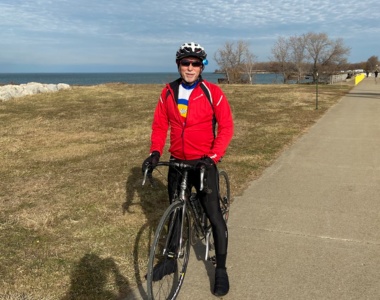
Mark Chupp
Associate professor, Jack, Joseph and Morton Mandel School of Applied Social Sciences
Co-director, Social Justice Institute
“Since joining the faculty, I have committed to bike to work. I don’t have a parking pass, which gives me an extra incentive to bike, even when the weather is not so nice.”

Silas Hicks
President, Student Sustainability Council
Second-year, applied math major
“I think a small thing I do that is really important is spending time getting informed about the environment and not just focusing on the negative, but the positive as well. Understanding the parts of all the different institutions you are involved in—and their role inhelping the Earth—is super important, and the process of creating a more environmentally just world is a daunting task that is very much not an individual project.
“I like looking at the positive effects of others because it’s an important part of keeping myself motivated to affect positive change in our world! Being informed about environmental work within our community also allows me to take simple but practical actions by participating in others’ work, for example a recent stream cleanup done in collaboration with the local Doan Brook Watershed Partnership.”
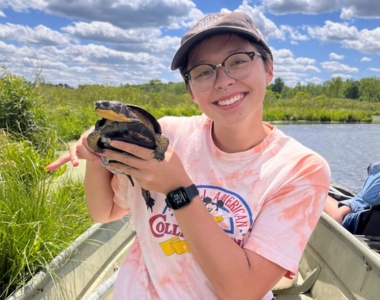
Sofie Iwamasa
Student Sustainability Ambassador
Fourth-year, chemical engineering major
“One of the easiest things I do to help the Earth is just to keep a metal spoon in my bag. It reduces waste, and I think it’s just a nicer experience to eat with a metal spoon compared to a disposable one.
“I think one of the more impactful things I do is participate in Fix-it Cle. It’s a bi-monthly workshop to repair pretty much anything in your home. The next one is April 24 from 3 to 7 p.m. in think[box]. I’ll be bringing in hand-me-down regalia to get help hemming it from 6 ft. 2 in. to 5 ft. 3 in.”
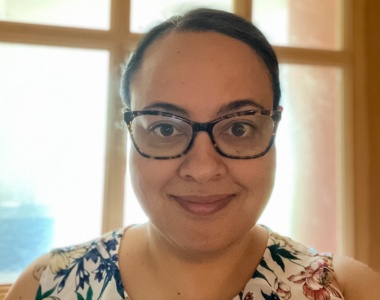
Ina Martin
Science director, Materials for Opto/electronics Research & Education (MORE) Center
“One small action I take to help the Earth is that we compost. I like to look for the existing systems, and in Northeast Ohio, we’re lucky to have Rustbelt Riders.”
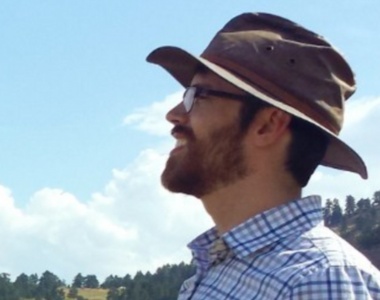
Evan Meszaros
Librarian, research and engagement
“I acquire or borrow much of what I need (with the exception of food and other consumables) through a variety of venues, including our wonderful local public libraries; my local Buy Nothing group; local thrift and reuse stores like the Habitat for Humanity ReStore, Value World, Goodwill, Avalon Exchange, Plato’s Closet, and Uptown Cheapskate; garage, liquidation, and estate sales (some of which may be found on EstateSales.net); and sites like Nextdoor’s “For Sale & Free,” Facebook Marketplace, OfferUp, Mercari, Poshmark, and Freecycle. So instead of buying it new on Amazon, save yourself a bunch of money and take advantage of the vast amount of free or cheap stuff out there, which is often nearly as good as new!
“I try to follow the No Mow May recommendation of avoiding mowing my lawn every spring for as long as possible (or until my municipality starts fining me) in order to let flowers bloom, which in turn supports bees and other early pollinators. I also avoid using chemical herbicides and pesticides on my grass, and have plans to reduce my lawn’s footprint by expanding my garden.”
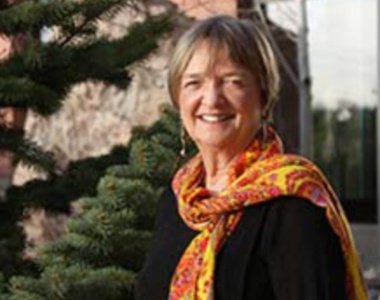
Karen Mulloy
Associate professor, School of Medicine
“I have committed to promote equity and support my community by learning about and purchasing items at diverse and locally owned businesses: think global, act local.”
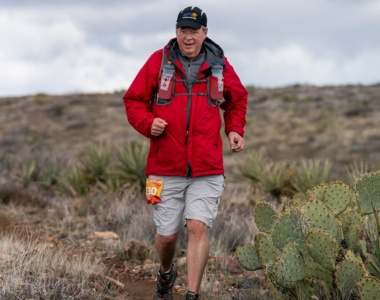
Cyrus Taylor
Albert A. Michelson Professor in Physics, College of Arts and Sciences
“I suppose the most recent thing I did that I hope helps the Earth in some small way was [recently]: I submitted written testimony to the Ohio Senate Workforce and Higher Education Committee opposing Senate Bill 83, the “Higher Education Enhancement Act.” Although I think much of the bill is odious, my testimony concentrated on the bill’s inclusion of “climate change” as an example of a “controversial belief or policy.””

